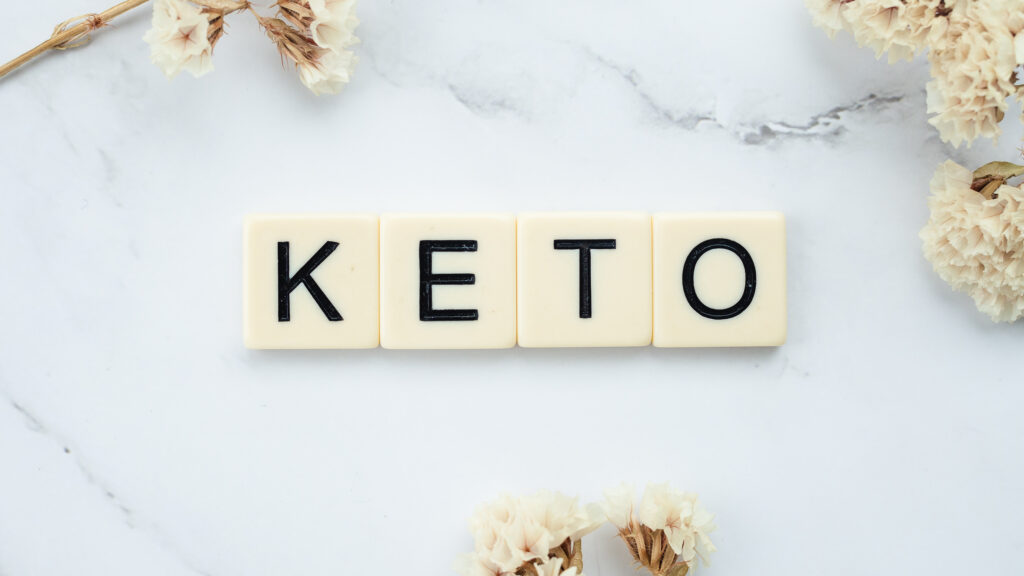Are you a vegetarian or vegan considering trying out the popular keto diet? Look no further! This article provides valuable tips and tricks for adapting the ideal keto diet to suit your vegetarian or vegan lifestyle. Discover how to maintain a low-carb, high-fat diet while enjoying a diverse range of plant-based foods. Whether you’re looking to shed some pounds or simply improve your overall health, these tips will help you navigate the world of vegetarian or vegan keto with confidence and ease.
Benefits of the keto diet
Weight loss
The keto diet has gained popularity for its ability to aid in weight loss. By significantly reducing carbohydrates and increasing healthy fats, the body enters a state of ketosis. In this state, the body burns fat for fuel instead of glucose, leading to a more efficient breakdown and utilization of stored fat. This can result in rapid weight loss and a decrease in body fat percentage.
Improves heart health
Following a keto diet can have a positive impact on heart health. The emphasis on healthy fats such as avocados, nuts, and olive oil can help increase levels of HDL (good) cholesterol while decreasing levels of LDL (bad) cholesterol. Additionally, the reduction in refined carbohydrates and sugar can lower triglyceride levels, which are known risk factors for heart disease.
Boosts brain function
The keto diet has been found to have neuroprotective effects and can improve cognitive function. When the body is in a state of ketosis, it produces ketones, which act as an alternative fuel source for the brain. These ketones provide a more stable and efficient energy source compared to glucose, leading to improved mental clarity, focus, and concentration.
Reduces inflammation
Inflammation is the body’s natural response to injury or infection, but when it becomes chronic, it can contribute to the development of various diseases. The keto diet has been shown to reduce inflammation in the body. By eliminating processed foods, refined sugars, and grains, the diet helps reduce inflammation markers, leading to decreased joint pain, improved skin conditions, and a lower risk of chronic diseases such as heart disease and diabetes.
Enhances energy levels
One of the benefits of the keto diet is increased and sustained energy levels. By shifting the body’s primary fuel source from carbohydrates to fats, the diet provides a steady supply of energy throughout the day. Unlike the energy crashes often experienced after consuming high-carbohydrate meals, the keto diet keeps blood sugar levels stable, preventing fluctuations in energy levels. This can lead to increased productivity, improved athletic performance, and a general feeling of sustained energy throughout the day.
Understanding the vegetarian and vegan diets
Vegetarian diet
A vegetarian diet excludes the consumption of meat and fish but allows for the consumption of eggs and dairy products. Vegetarians rely on plant-based foods such as fruits, vegetables, legumes, grains, and nuts for their nutritional needs.
Vegan diet
A vegan diet, on the other hand, excludes all animal products, including eggs, dairy, and honey. While vegans eliminate animal-based foods from their diet completely, they rely solely on plant-based foods to meet their nutritional requirements.
Key nutrient concerns for vegetarians and vegans
Both vegetarians and vegans need to pay attention to certain key nutrients that may be lacking in their diets. These include vitamin B12, iron, calcium, omega-3 fatty acids, and protein. It is important for vegetarians and vegans to ensure they obtain these nutrients through plant-based sources or supplements to maintain optimal health.

Adapting keto for vegetarians
Include plant-based fats
Vegetarians can easily adapt the keto diet by including plant-based fats in their meals. This can be achieved through the consumption of avocados, olive oil, coconut oil, nuts, seeds, and nut butters. These healthy fats provide essential nutrients and help increase feelings of satiety.
Focus on low-carb vegetables
Vegetarians on the keto diet should prioritize consuming low-carb vegetables, which are high in fiber and essential vitamins and minerals. Examples of low-carb vegetables include leafy greens, cauliflower, broccoli, zucchini, and green beans. These vegetables can be incorporated into salads, stir-fries, or roasted as a side dish.
Incorporate plant-based protein sources
To meet their protein needs, vegetarians can include plant-based protein sources in their keto meals. Legumes such as lentils, chickpeas, and black beans are excellent sources of protein and can be used in soups, stews, or salads. Additionally, tofu, tempeh, and seitan are popular protein choices for vegetarians and can be incorporated into various recipes.
Use eggs and dairy products
Since vegetarians can consume eggs and dairy products, these can serve as valuable sources of protein and fats on the keto diet. Eggs can be prepared in various ways, such as scrambled, boiled, or used in omelets. Dairy products like cheese, Greek yogurt, and cottage cheese can be included in meals for extra protein and flavor.
Avoid processed vegetarian foods
While there are many processed vegetarian foods available on the market, it is best to avoid them on the keto diet. These foods are often high in carbohydrates and may contain added sugars and unhealthy fats. Instead, focus on whole, unprocessed foods, and prepare meals from scratch to ensure they align with your keto and vegetarian goals.
Adapting keto for vegans
Replace animal-based fats with plant-based fats
For vegans following the keto diet, it is important to replace animal-based fats with plant-based alternatives. This can be done by using olive oil, coconut oil, avocado oil, and nut and seed oils for cooking and dressing salads. These plant-based fats provide essential nutrients and contribute to the healthy functioning of the body.
Select low-carb vegetables
Similar to vegetarians, vegans on the keto diet should prioritize consuming low-carb vegetables to keep their carbohydrate intake in check. Leafy greens, cauliflower, broccoli, Brussels sprouts, and asparagus are excellent choices that are low in carbohydrates but high in fiber and essential nutrients.
Include plant-based protein sources
To meet their protein needs, vegans can include plant-based protein sources such as tofu, tempeh, and seitan in their meals. These protein-rich options can be used in stir-fries, curries, or grilled as a main dish. Additionally, legumes like lentils, chickpeas, and black beans are excellent sources of protein for vegans.
Incorporate seeds and nuts
Seeds and nuts are valuable additions to a vegan keto diet as they provide essential healthy fats, protein, and fiber. Chia seeds, flaxseeds, hemp seeds, almonds, walnuts, and macadamia nuts are all excellent choices that can be added to smoothies, salads, or consumed as a snack.
Avoid processed vegan foods
Similar to vegetarians, it is important for vegans to avoid processed vegan foods on the keto diet. These foods often contain high levels of carbohydrates and may be lacking in nutrients. Instead, focus on whole foods and homemade meals to ensure the nutritional adequacy of your diet.

Understanding net carbs
Total carbs vs. net carbs
Total carbs refer to the overall amount of carbohydrates present in a food or meal, including sugars, fibers, and starches. Net carbs, on the other hand, represent the carbohydrates that are actually digested and absorbed by the body. Net carbs can be calculated by subtracting the fiber content from the total carbs.
Calculating net carbs
To calculate net carbs, simply subtract the fiber content from the total carbs. For example, if a food has 10 grams of total carbs and 5 grams of fiber, the net carbs would be 5 grams. By focusing on net carbs rather than total carbs, individuals on the keto diet can better control their carbohydrate intake and maintain a state of ketosis.
Managing micronutrient intake
Important vitamins and minerals on a keto diet
While following a keto diet, it is important to ensure adequate intake of essential vitamins and minerals. These include B vitamins, vitamin C, vitamin D, vitamin E, magnesium, potassium, and sodium. These nutrients play crucial roles in energy production, immune function, bone health, and electrolyte balance.
Key sources for vegetarians and vegans
Vegetarians can obtain these important micronutrients through foods such as eggs, dairy products, leafy greens, nuts, and seeds. Vegans, on the other hand, can rely on plant-based sources such as fortified plant milks, nutritional yeast, leafy greens, and supplementation when necessary. It is important to pay attention to these nutrients to maintain overall health while following a keto diet.

Meal planning for vegetarian keto
Creating balanced vegetarian keto meals
Creating balanced vegetarian keto meals involves combining a variety of plant-based fats, low-carb vegetables, and plant-based protein sources. A typical vegetarian keto meal may include an avocado salad with olive oil dressing, roasted cauliflower, and tofu stir-fry. Balancing the macronutrients of fats, protein, and carbohydrates ensures that nutritional needs are met and helps maintain a state of ketosis.
Sample vegetarian keto meal plan
Here is a sample vegetarian keto meal plan to get you started:
- Breakfast: Scrambled eggs with spinach cooked in coconut oil.
- Snack: A handful of almonds and a piece of cheese.
- Lunch: Salad with mixed greens, avocado, cherry tomatoes, and grilled halloumi cheese, dressed with olive oil and lemon juice.
- Snack: Greek yogurt with chia seeds and berries.
- Dinner: Baked tofu with roasted broccoli and cauliflower florets, drizzled with tahini sauce.
- Dessert: Dark chocolate square or sugar-free almond butter cups.
Preparation tips
To make meal planning and preparation easier, consider batch cooking and meal prepping. Prepare larger quantities of food to have leftovers for future meals. Also, make use of various cooking methods such as grilling, roasting, stir-frying, and baking to add variety to your meals. Additionally, keep a well-stocked pantry of keto-friendly ingredients to ensure you always have options on hand.
Meal planning for vegan keto
Creating balanced vegan keto meals
Creating balanced vegan keto meals involves incorporating plant-based fats, low-carb vegetables, and plant-based protein sources. For example, a vegan keto meal might consist of tofu or tempeh cooked in coconut oil, served with a side of roasted Brussels sprouts and a salad dressed with olive oil and lemon juice. Balancing macronutrients ensures a well-rounded and nutritious meal.
Sample vegan keto meal plan
Here is a sample vegan keto meal plan to help you get started:
- Breakfast: Smoothie made with coconut milk, spinach, avocado, and protein powder.
- Snack: Celery sticks with almond butter.
- Lunch: Cauliflower rice stir-fry with tofu, bell peppers, and broccoli.
- Snack: Roasted almonds seasoned with spices like turmeric and paprika.
- Dinner: Zucchini noodles with a creamy vegan alfredo sauce made from cashews and nutritional yeast.
- Dessert: Coconut milk chia pudding topped with mixed berries.
Preparation tips
To make meal planning and preparation easier, consider batch cooking and meal prepping. Prepare larger portions of food to have leftovers for future meals. Use cooking techniques such as baking, grilling, and sautéing to add variety to your meals. Also, keep a well-stocked pantry of vegan keto-friendly ingredients such as coconut oil, nut butters, and non-starchy vegetables.
Snack ideas for vegetarian and vegan keto
Vegetarian keto snacks
- Hard-boiled eggs
- Cheese sticks or slices
- Raw nuts and seeds
- Avocado slices with sea salt
- Cottage cheese with berries
- Greek yogurt with a sprinkle of nuts or seeds
Vegan keto snacks
- Kale chips
- Roasted almonds or cashews
- Celery sticks with almond butter
- Coconut milk-based yogurt with chia seeds
- Almond milk smoothie with protein powder
- Raw vegetables with guacamole or salsa
Conclusion
The keto diet can offer numerous benefits, including weight loss, improved heart health, enhanced brain function, reduced inflammation, and increased energy levels. Vegetarians and vegans can successfully adapt the keto diet by carefully selecting plant-based fats, low-carb vegetables, and plant-based protein sources. By paying attention to nutrient concerns and managing macronutrient intake, individuals can enjoy the benefits of the keto diet while adhering to their chosen dietary preferences. With proper meal planning and preparation, vegetarian and vegan keto diets can be delicious, nutritious, and sustainable for long-term health and wellness.
